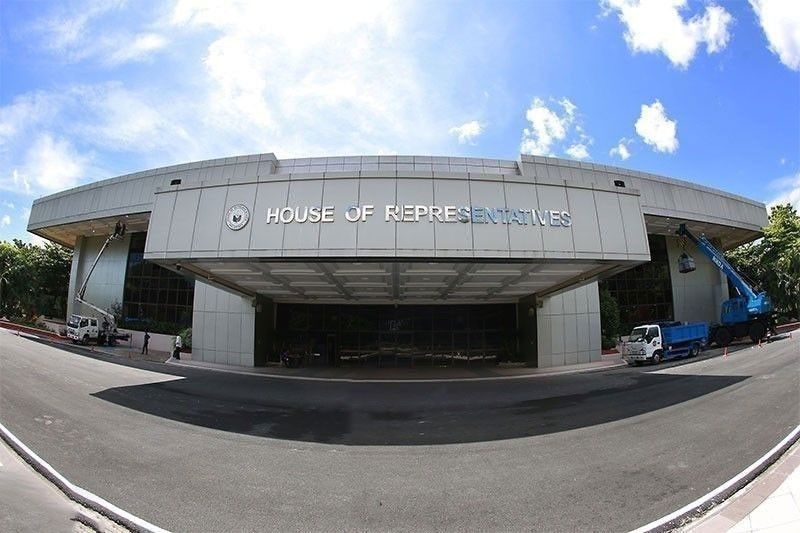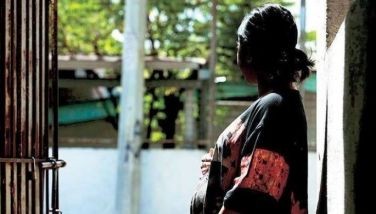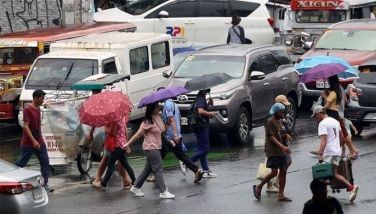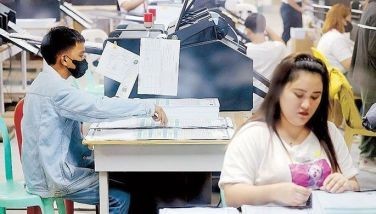Duterte expected to face Senate probe today

MANILA, Philippines — Will there be a face-off between former senator Leila de Lima and former president Rodrigo Duterte in today’s first inquiry of the Senate Blue Ribbon committee on the country’s war on illegal drugs?
Both De Lima and Duterte have, as resource persons, reportedly confirmed their respective attendance at the public hearing of the Blue Ribbon committee to be presided over by Senate Minority Leader Aquilino Pimentel III.
Duterte’s attendance was confirmed earlier by his first Philippine National Police chief and now Sen. Ronald dela Rosa, considered the architect of the intensified drug campaign.
De Lima’s attendance to today’s Senate hearing was assured in the media advisory of the Mamamayang Liberal (ML) party-list, where the former senator is running as its first nominee. De Lima, who served as the chairperson of the Commission on Human Rights, was one of the critics of Duterte’s war on drugs.
She was arrested and jailed for about seven years during Duterte’s presidency over allegations of illegal drug activities. De Lima was eventually cleared of all charges.
On the calls of Sen. Dela Rosa and Sen. Bong Go, Senate President Francis Escudero tapped Pimentel to head the committee in its motu proprio inquiry on the so-called war on drugs, which constituted a key policy initiative introduced by Duterte shortly after he assumed office in June 2016.
The Senate probe would be parallel to that of the House.
In its advisory, the committee lined up several goals in its probe, including to determine the primary goals of Duterte’s war on drugs, and how was the campaign carried out; also how did the ‘Oplan Tokhang’ approach work, and why it became controversial.
The advisory added further that on human rights issues, the committee would hope to establish why there are so many allegations of extrajudicial killings in the drug war, how it affected poor communities, and was it seen as a social justice issue amid legal and ethical concerns stemming from the campaign’s alleged lack of due process.
“How did the ICC (International Criminal Court) respond to the drug war, and what led the Philippines to withdraw from the court?” the advisory indicated.
The advisory said that both public support and criticism would also be tackled. “Why did some Filipinos support the ‘War on Drugs,’ and how did they perceive its impact on crimes? What criticisms were raised by human rights organizations and international bodies?”
Duterte said he sought to address illegal drug use, particularly shabu (methamphetamine), which he asserted had permeated various social strata and exacerbated issues related to violence, crime and corruption. The campaign was designed to target both drug users and traffickers, with government officials framing it as an essential measure to ensure public safety and restore societal order.
The committee noted a Philippine National Police report in May 2022 that approximately 6,200 individuals had lost their lives in anti-drug operations. In contrast, human rights organizations, such as Human Rights Watch, suggest that the actual death toll could be significantly greater, estimating figures near 12,000.
In 2018, the ICC initiated a preliminary examination into allegations of crimes against humanity associated with the war on drugs. In response to this investigation, Duterte announced the Philippines’ withdrawal from the ICC. Nonetheless, the court continued its formal investigation, which commenced in 2021.
A particularly contentious aspect of this campaign has been the allegations of state-sanctioned extrajudicial killings. Critics have said that the campaign disproportionately affected economically disadvantaged urban populations, often targeting individuals who were minor users or low-level dealers in impoverished neighborhoods.
- Latest
- Trending































